News
Establish AI Commission To Tackle Revenue Leakages, PAAC Advises Tinubu
The Chairman, Pan African American Chamber of Commerce, Prof. Olatokunbo Onabanjo, has advised President Bola Tinubu to establish Artificial Intelligence Commission(AI) to address revenue leakages in the country.
Onabanjo, in an interview with The Tide’s source, in Lagos, yesterday, said establishing Artificial Intelligence Commission(AI) would turn around Nigeria’s education, health, housing, trade and tourism sectors among others.
“With the establishment of Artificial Intelligence Commission, and by integrating AI algorithms into the government’s financial systems, suspicious transactions and patterns can be automatically flagged for further investigation.
“AI can analyse large volumes of data in real-time, identify anomalies, and detect potential cases of fraud or revenue leakage,” he said.
Onabanjo, who was the Director of Computer Services during Tinubu’s administration as governor of Lagos State, called for enhanced Data Analytics Capabilities through utilisation of Enterprises Resources Planning(Oracle ERP) system to gather data from various government departments and agencies.
“By leveraging on AI-powered analytics tools, the government can gain valuable insights into revenue collection, expenditure patterns, and identify areas where leakages are occurring.
“This data-driven approach will help to identify loopholes and develop strategies to plug them,” he said.
Onabanjo, a seasoned project manager and member of Certified Project Management Professionals, said that the use of AI would also strengthen tax compliance and revenue collection by government.
“AI can be employed to automate the tax collection process, ensuring accurate and efficient assessment, billing, and collection of taxes.
“AI algorithms will analyse tax data, identify potential tax evaders, and facilitate targeted enforcement actions. This can help increase tax compliance and revenue generation.
“ERP systems will also be utilised to streamline and automate procurement processes.
“AI-powered analytics will help identify discrepancies, detect fraud, and ensure transparency in procurement transactions. This can minimise leakage and corruption in procurement activities.
“AI will assist in identifying potential risks and vulnerabilities in revenue collection processes.
“By analysing historical data and patterns, AI algorithms can predict potential areas of revenue leakage and enable proactive measures to mitigate risks,” he said.
Onabanjo said that implementing ERP systems would facilitate data sharing and collaboration among different government agencies involved in revenue collection and management.
According to him, this will enable real-time data exchange, improve coordination, and enhance visibility into revenue-related activities, making it easier to identify and address leakages.
The PAAC chairman called on the government to also invest in capacity building.
“To effectively leverage AI and ERP resources, it is essential to invest in training government personnel to use these technologies.
“Building a skilled workforce that can handle data analysis, AI algorithms, and ERP systems will ensure the successful implementation and utilization of these resources.
“It’s important to note that addressing revenue leakages requires a holistic approach, including policy reforms, enforcement mechanisms, and transparency initiatives.
“AI and ERP resources can complement these efforts by providing advanced tools and insights to identify and tackle revenue leakages effectively,” he stated.
He was of the view that Oracle ERP implementation could streamline government processes, improve data management, and promote transparency in financial transactions.
According to him, this will help the government in making informed decisions, reducing inefficiencies, and minimising corruption.
Onabanjo said: “ERP systems can consolidate and automate various administrative functions, leading to cost savings in areas such as procurement, inventory management, and payroll.
“This can free up resources that can be redirected towards other developmental initiatives.
“With an efficient ERP system in place, government departments can provide better services to citizens.
“Streamlined processes and improved data management can result in faster response times, reduced bureaucracy, and enhanced service quality.”
According to him, ERP systems generate vast amounts of data, which can be analysed to gain insights and support evidence-based decision making.
He said that it could help the government to identify trends, evaluate policy effectiveness, and allocate resources more effectively.
“In addition to ERP implementation, the integration of AI technologies can further benefit the Federal Government of Nigeria.
“AI has the potential to automate repetitive tasks, enhance data analysis capabilities, and improve decision-making processes,” he disclosed.
He listed few the ways AI could help to include Intelligent Automation, Data Analysis and Predictive Modelling, Fraud Detection and Cybersecurity among others.
“AI-powered automation can streamline processes across various government departments, increasing efficiency, and reducing human error. This can lead to improved service delivery and cost savings,” he stated.
News
Don’t Attend Nocturnal Meetings To Declare War On Rivers, Fubara Tells New CP
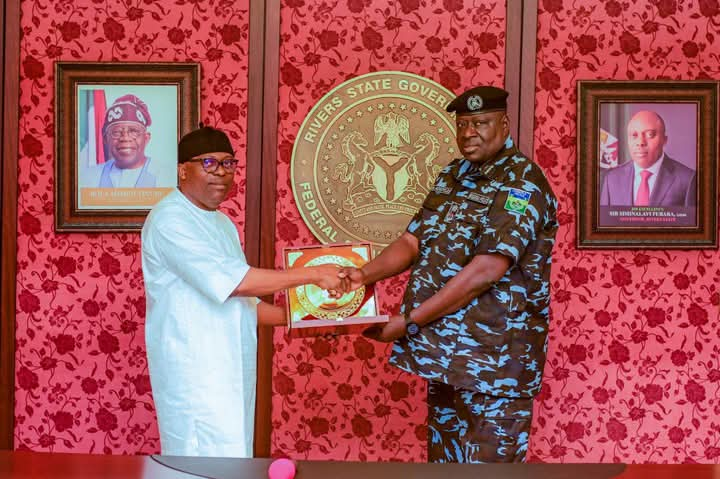
Rivers State Governor, Sir Siminalayi Fubara, has advised the new Commissioner of Police posted to the State, Olugbenga Adepoju, to resist the temptation of attending nocturnal meetings that will make him declare war on Rivers people.
Rather, the Governor urged him to put the general interest of the people of the State above other considerations so that he can work to ensure that peace prevailed and there is stability.
Governor Fubara gave the advice when he received CP Olugbenga Adepoju, the 47th Commissioner of Police, Rivers State Command, on courtesy visit, at Government House in Port Harcourt, last Friday.
The Governor said: “You are not a new person in our State. You’ve been here, more especially, in charge of Operations. It then means if I start to talk about my story, it’ll connect with your activities in Operations. But I am not going to talk about my story.
“But the good thing here is, you said something that I want to really anchor on. Your duty, as it stands now, is to work with the government, work with other sister agencies to maintain law and order, protect lives and property of the people of Rivers State.
“Be apolitical, as you just read in your address. Don’t go to nocturnal meetings in people’s houses, and in the morning, you come and declare war on Rivers people. That is the only advice I will give to you.”
Governor Fubara charged the CP, who is already conversant with the Rivers State terrain and its associated security challenges, to draw up a holistic plan on how to tackle the twin problem of cultism among the youths and kidnapping incidences in boundary communities.
Governor Fubara said his administration is not failing on its responsibilities to security agencies to sufficiently address those issues and save Rivers people, adding, “But the primary duty of this team, these particular challenges are rested on the police. So, please, take this one as my own assignment (to you).
“While you are carrying out the larger assignment that your people from headquarters will send you, also make sure that you look for every way possible to reduce issues of cultism because it is affecting our secondary schools, it is affecting our primary schools with students growing to become monsters, which is also leading to other issues like kidnapping and others.
“It starts from somewhere. So, we must also get to the root and reduce it. I know we cannot totally eliminate it, but, somehow, let us look for a way to reduce it.”
Governor Fubara said the former CP to the State had succeeded because he maintained healthy synergy with the State Government, and assured that the same level of support will be provided to the new CP, if he adheres to the tenets of professionalism, stressing, “On our part as a Government, we will continue to support you to make sure you succeed. Your success here will mean more elevation for you. If you have a very bad record here, whether you like it or not, it will one day in the course of your profession, affect your growth.”
In his address, Rivers State Commissioner of Police, CP Olugbenga Adepoju, expressed profound gratitude for the opportunity given to him to serve the resilient and vibrant people of Rivers State as the 47th Commissioner of Police.
CP Adepoju said he is fully aware of the complex security challenges in the State, and is determined to do everything professionally to confront them with innovation.
He said, “We will strengthen our intelligence gathering capabilities, enhance our rapid response mechanism, and most importantly, foster deeper trust and collaboration with the community we serve. Our Command will remain firmly apolitical, standing as a neutral and impartial institution, dedicated solely to upholding law and order. This commitment is vital to maintaining the trust and confidence of the people we protect.”
CP Adepoju also said: “While we will engage constructively with political leaders and key stakeholders to secure necessary resources and support, our engagement will always be conducted with professionalism and integrity”.
Meanwhile, Governor Siminalayi Fubara, and the State Commissioner of Police, Olugbenga Adepoju, have decorated two officers in Government House with their new ranks of Deputy Superintendent of Police (DSP).
They include the Personal Security Officer to the Governor, Anthony Peter, who was recently promoted from Assistant Superintendent of Police (ASP 1) to Deputy Superintendent of Police (DSP); and Provost Marshal, Government House, John Wakama, who was also promoted from Assistant Superintendent of Police (ASP 1) to Deputy Superintendent of Police (DSP).
Both the Governor and the Commissioner of Police were assisted at the short event by the wives of the newly promoted officers.
The decoration ceremony was performed shortly after the courtesy visit to the Governor by the State Commissioner of Police at the Government House, Port Harcourt, last Friday.
News
TUC Rejects VAT Hike, Urges Pro-people Tax Reforms
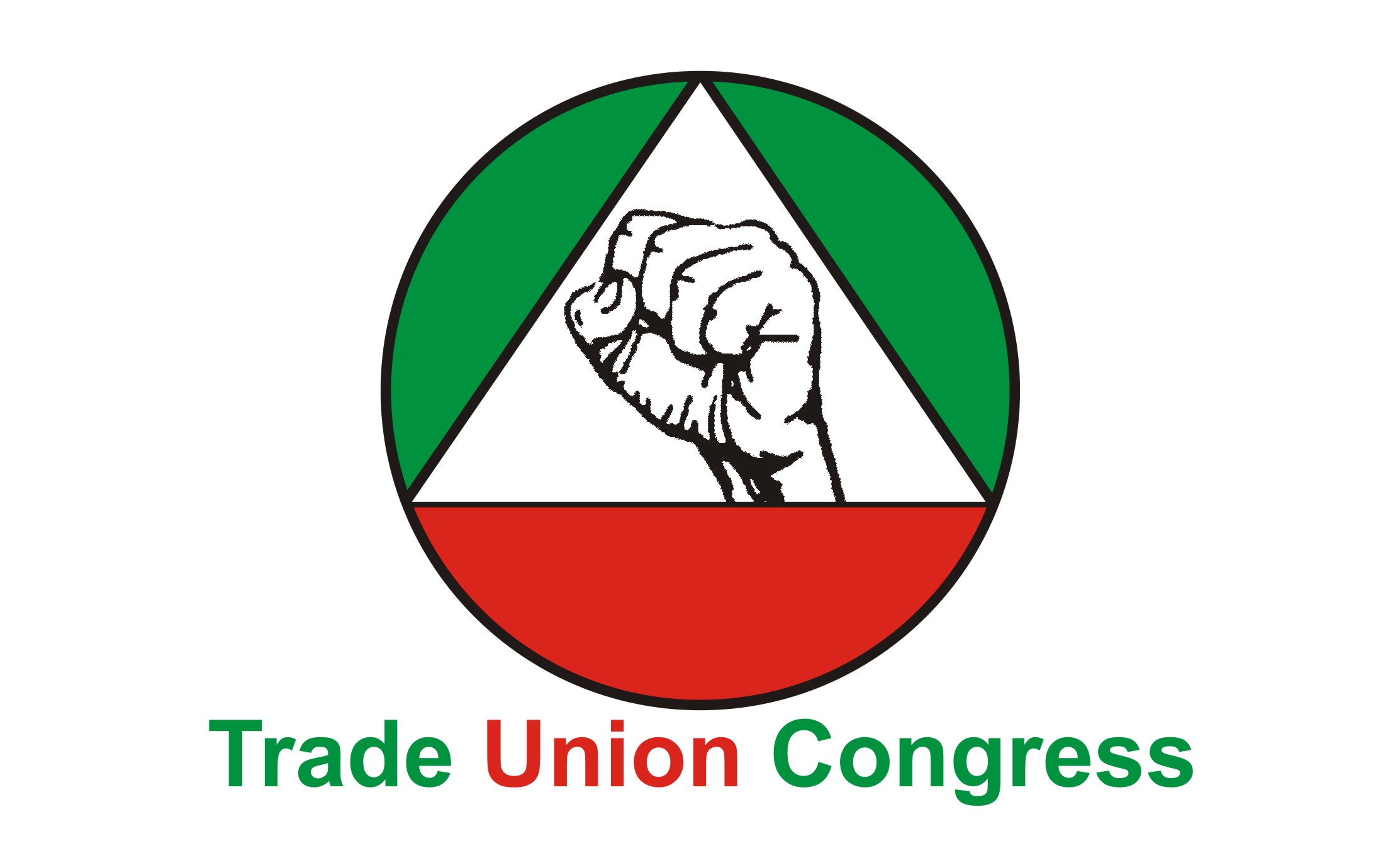
The Trade Union Congress of Nigeria has opposed the proposed increase in the Value Added Tax rate, as outlined in the Federal Government’s Tax Reform Bills, warning that the move could worsen the economic hardship faced by Nigerians.
The Federal Government had proposed a phased VAT hike from the current 7.5% to 10%, 12.5%, and ultimately 15%, a move the TUC described as ill-timed and detrimental to the welfare of citizens already grappling with inflation, unemployment, and a soaring cost of living.
Speaking during a press briefing in Abuja, yesterday, following the union’s National Executive Council meeting held on November 26, 2024, TUC President Festus Osifo said maintaining the VAT rate at 7.5 per cent was crucial to safeguarding Nigerians from additional financial pressure.
“Allowing the Value Added Tax rate to remain at 7.5 per cent is in the best interest of the nation. Increasing it now would impose an additional burden on households and businesses already struggling with economic challenges,” Osifo said.
He added, “With inflation, unemployment, and the cost of living on the rise, higher taxes could stifle economic growth and erode consumer purchasing power.”
The TUC called for a review of the tax exemption threshold, urging the government to raise it from N800,000 to N2.5 million per annum to ease the financial strain on low-income earners.
“This measure would increase disposable income, stimulate economic activity, and provide relief to struggling Nigerians,” Osifo explained.
He said, “The threshold for tax exemptions should be increased to N2,500,000 per annum. This adjustment would offer much-needed relief to low-income earners, enabling them to cope with the current economic challenges.”
The TUC also expressed reservations about the proposed transfer of royalty collection from the Nigerian Upstream Petroleum Regulatory Commission to the Nigeria Revenue Service (NRS), citing risks of revenue losses and inefficiencies.
“Royalty determination and reconciliation require specialised technical expertise in oil and gas operations, which the NUPRC possesses but the NRS lacks. This shift could result in inaccurate assessments, enforcement challenges, and reduced investor confidence,” Osifo warned.
The union commended the government’s decision to retain the Tertiary Education Trust Fund and the National Agency for Science and Engineering Infrastructure, describing their roles as pivotal to the country’s education and technological advancement.
“These institutions have significantly contributed to improving tertiary education and fostering homegrown technologies. Their continued existence is vital for sustained progress in education, technology, and national development,” Osifo said.
Osifo called on the Federal Government to adopt tax policies that prioritise the welfare of citizens and promote equitable economic growth.
“As discussions on the Tax Reform Bill continue, it is our hope that the focus will remain on fostering economic growth and improving living conditions for all Nigerians,” he said.
The TUC reaffirmed its commitment to advocating for policies that enhance the well-being of Nigerians, emphasising that proactive and citizen-centred reforms reflect true leadership.
News
Fubara Inaugurates Road Project To Celebrate Jackrich On Birthday

Rivers State Governor, Sir Siminalayi Fubara, has noted with delight the initiative, love and courage shown by High Chief Sobomabo Jackrich in contributing to improved road infrastructure in his community.
Governor Fubara made the commendation when he visited the country home of Amb Sobomabo Jackrich to celebrate with him on his birthday, and used the occasion to inaugurate a road project executed by the celebrant in Usokun Town in Degema Local Government Area.
Amb Sobomabo Jackrich, also known as Egberepapa, is a prominent Niger Delta leader and National Chairman of Simplicity Movement.
Governor Fubara said the road project, solely funded and completed by the celebrant, shows how committed he is to making life better for residents in his community.
The Governor said: “Let me on behalf of the guests that are here to celebrate with our brother, not really an official engagement, but on a personal note, also share a wonderful moment with our people.
“Our celebrant is not just celebrating his birthday, but he is also giving back to the society. So, I join him and all well-meaning people that believe in his course to commission this project that he has embarked on in his own accord for the betterment of his people.
“I want to say that with what I am seeing here, there may be a few things that we can also do to make this project more meaningful to the people in terms of streetlights. On our own, we are going to support him to complete it.”
Governor Fubara, who also joined the celebrant to cut the birthday cake, prayed for strength and longevity for the celebrant.
-
Niger Delta10 hours ago
RSBOPP Moves To Review Procurement Processes
-
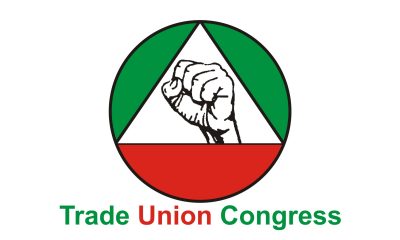
 News10 hours ago
News10 hours agoTUC Rejects VAT Hike, Urges Pro-people Tax Reforms
-

 Business10 hours ago
Business10 hours agoCBN Predicts 4.17% GDP Growth In 2025
-
Rivers9 hours ago
100 Days: Omuma Council Boss Lists Achievements
-
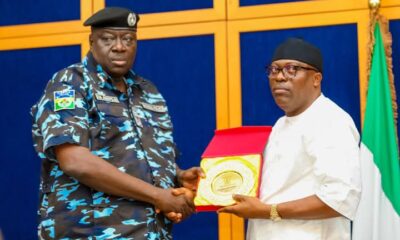
 Featured9 hours ago
Featured9 hours agoTinubu Pledges Peace, Justice, Development in Ogoniland….Fubara Lauds President on Peace Talks
-

 Featured11 hours ago
Featured11 hours agoFG, States, Local Govts Share N1.42trn In January
-
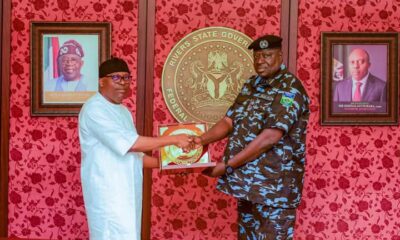
 News9 hours ago
News9 hours agoDon’t Attend Nocturnal Meetings To Declare War On Rivers, Fubara Tells New CP
-
News11 hours ago
AUDA-NEPAD Nigeria To Electrify 1m Rural Communities In 2025

